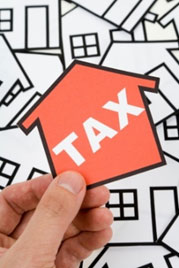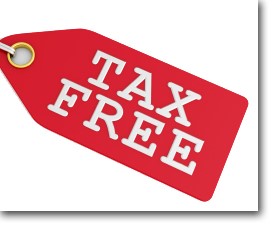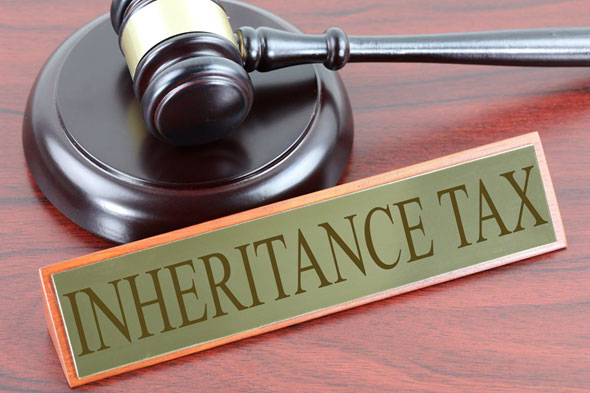Selling Property – How to reduce CGT bill?

SELLING PROPERTY THAT IS YOUR MAIN RESIDENCE If you are selling property that is not your main residence you will qualify for the Private Residence Relief, This means that if you can prove that the property that you are selling was the private property and your main residence you won’t have to pay CGT on it. The property that an individual is selling will be considered their private residence if it’s their only home and they have used it as a main residence for all the whole period of time that they have owned it. It should not have been used for letting purposes for any period of time. You should have ever used part of the property or whole of the property for any business purposes. If you are self-employed and you have registered the home address as your business address, it might be considered that you are using it for business purposes and you might have to pay CGT when you sell the property. The whole property must be less than 5000 square meters to qualify for PPR. This includes the building as well as the grounds that form part of the property. This can be an issue for those living in the country side with substantial lands. To avoid paying CGT they can sell the land separately. The individual selling the property will have to prove that they did not buy the property just to make a gain. It’s not a problem for those who have been living in the house for years, however, in recent years when houses are bought for investment purposes, CGT will have to be paid when such a property is sold. SELLING PROPERTY THAT YOU INHERITED: If you have inherited a property and you have decided that you do not want to keep it, you can sell it during probate without paying CGT on it. If the value of the property increased after the person died then the individual who inherited the property will have to pay CGT on the sale of the inherited property. The government will estimate the increase in the value of the property after the person died and CGT will be paid on the gain during the probate. Although each situation is different, it is a good idea to sell the inherited property during the probate period so that the CGT paid is minimal. If you are selling or buying property and you need advice, please feel free to contact us by clicking here. We are tax experts based in Croydon and South hall. We can give you tax advise based on your individual situation so you can make maximise your profits.
Discretionery Trusts

WHAT IS A DISCRETIONARY TRUST? A discretionary trust is one of the trusts which can be set up by an individual to manage their assets. By creating a discretionary trust you can manage your cash, other investments such as shares, land and buildings in such a way that it can be beneficial to your family in the future when they need it the most. Creating a discretionary trust involves a settlor (an individual who puts the assets in the trust), a trustee (the one who manages the trust), and a beneficiary (anyone who is benefitted from the trust). The beneficiary in the discretion trust does not have a right over the trust assets until they are distributed by the trustees according to the` trust deed’. For example, you want to set some money aside for your grandchildren from your estate and not give them right away, you (the settlor) will put the money in the trust which will then be distributed to the beneficiary (in this case your grandchildren) at a certain age say for example at the age if 25 when they can sensibly manage their money and this will be distributed by the trustee. WHY SHOULD I CREATE A DISCRETIONARY TRUST? Many people want to put their money in the trust as part of the estate planning. . Once the assets are added to the trust they are not part of your estate and therefore they are excluded for the inheritance tax purposes. A discretionary trust is created to ensure the family gets the wealth when they require it. It may be set by an individual going through a divorce who wants to secure his wealth or it may be set by an individual who wants to give some wealth to his parents who are already on state benefits. Once you put your wealth in the Discretionary trust you can make gifts to your family during your lifetime or even after your death. HOW DO WE CREATE A DISCRETIONARY TRUST? Creating a trust usually is a 4 step process in which an individual who is the settlor decides upon which assets to put in a trust, they then appoint the trustees who has the discretion over the distributions from the trust. The beneficiaries are chosen. The terms of the ‘terms of deed’ are defined. WHAT ARE THE TAX IMPLICATIONS? A discretionary trust has a standard rate band of £1000. This means the first £ 1000 is taxed at the standard rate of 20 % while the dividend income up to £1000 is taxed at 7.5%. Dividend income above £1000 is taxed at 38.1% while the other income is taxed at 45%. The trustees will pay the income tax on the income generated from the trust. For example if the trustees received the dividend income they need to pay £45 on the income of £100. The trustees need to fill in the tax return each year if there is income generated by the trust. When the income is then distributed to the beneficiary it comes with a tax credit. It will be treated as though it was already taxed at 45 %. If the trustee is a basic tax rate tax payer or a higher rate tax payer of 40 % they can reclaim the difference between the tax paid by them and the tax paid by the trustee by filling the Self-Assessment form. IF YOU NEED FURTHER HELP Putting money in a trust many require some expert advice. You need to consult a solicitor and a financial advisor to deal with the complex matters such as taxes. We at Taxaccolega can help you with this. Please feel free to contact us at 020 8127 0728 or drop us a message here and we will get back to you.
What are the tax implications if I put my money in a trust?

You will be putting money in a trust because of the following reasons: When you put money in a trust it no longer belongs to you. So for example, if there is an income generating asset in a trust such as shares, the income coming from the shares won’t belong to you and therefore you the creator of the trust (the settlor) won’t have to pay any income tax. INCOME TAX There are different types of trust and each trust have different set of rules. In case of a discretionary trust, it will be the responsibility of a trustee to pay the income tax. If there are more than one trustee then one trustee can be elected and made responsible for paying taxes. However, in case the trust fails to pay the taxes, all trustee can be held responsible for not paying taxes. A trustee needs to register themselves with HMRC when they are liable to pay the taxes. All the gains and the income should be reported in the annual Self-Assessment tax return and reported to HMRC. If you think you need an accountant for this you can call us at 020 8127 0728 or drop a message here and we will get back to you. Click here to find out the tax rates. IS INHERITANCE TAX PAID ON THE ASSETS IN A TRUST? For different types of trusts there are different inheritance tax rules. For discretionary trusts inheritance tax will be paid on the following occasions: WHEN A CAPITAL GAINS TAX NEEDS TO BE PAID? A capital gains tax needs to be paid by the settlor when the assets are transferred in the trust. When the trustee makes a gain on the disposal of an asset on behalf of the beneficiary. However, no CGT will be paid on the disposals or transfers of assets help in the ‘Bare trust’ and ‘Interest in possession trusts’. Capital Gains tax will also be paid by the trustee when the beneficiary becomes entitled to the asset. The CGT will be paid based on the market value. The calculations of CGT can be complicated, it might be worth hiring an accountant and we at Taxaccolega can help you explain the tax implications of your disposals and expenses and the reliefs you can use to reduce your CGT bill.
My parents gifted me their house. What taxes do we need to pay?

MY PARENTS ARE GIFTING ME THEIR HOME. JUST WANT TO KNOW WHAT TAXES THEY HAVE TO PAY AND WHAT WILL BE MY TAX RESPONSIBILITIES. One of our clients in his 40s approached us who is about to become the owner of his parents’ house in which he was living with them since his childhood. He was a bit confused as he had been hearing about lots of taxes involved while dealing with the properties. In the following blog we will be talking about the taxes which are generally involved with the properties and gifts and whether a person in the situation same as above will have to pay those taxes. CAPITAL GAINS TAX Capital Gains tax is a tax which is paid on the disposals or transfers of the assets. Capital Gains Tax is not paid on the disposal of the property which is your main home. For the property to qualify as your main home you need to be living in that house for as long as you have owned it, You must have never rented it and It’s not used as your office (It can get tricky if you are self-employed and your registered office address is same as your main residence). This is called private residence relief. Since in this situation the individual is living with his parents in the same house since childhood and the above criteria is met no CGT liability will arise as a result of the transfer of the property. However, it would be a good idea get the valuation of the property done at the time it is gifted to you. STAMP DUTY LAND TAX Stamp duty land tax is not paid on the property that is gifted to you. However, there is an exception. If the property that is gifted to you has an outstanding mortgage, SDLT will have to be paid if the value of the mortgage is above the value of SDLT threshold. SDLT will also need to be paid if the property was gifted by the parents to the siblings and one of the siblings wants to buy the share from the other siblings. In such cases HMRC needs to be informed as you might have to pay SDLT in this situation. INHERITANCE TAX No inheritable tax needs to be paid if the parents gifted the property during their lifetime and continued to live for 7 years. If they die within 7 years of making the transfer inheritance tax will need to be paid according to the 7 year rule. PAYING RENT In this situation when the person to whom the property is transferred is also living in the property and after gifting the property the parents continue to live with you they don’t have to pay any rent to you. However, in situations when after giving the gift the parents continue to live in the same house and you live somewhere else the parents will have to rent and their share of bills. So in conclusion in the above situation not much taxes are involved and it’s a pretty much straightforward transfer. However, there are different taxes which you need to pay if you plan to move out of the property, sell it or rent it. If you need assistance with any sort of advice on taxes you can consult Taxaccolega and our expert team will be happy to help you. You can visit us in our Croydon and South hall branches or call us at 020 8127 0728.
What are dividends and what taxes do I pay on them?

If you are running a limited company or about to start a business of your own you should be familiar with dividends. Dividend is the sum of money which is paid to the director/shareholder of the company. Dividend is distributed to the director or the directors of the company after the company has deducted all its expenses from the income and paid all the liabilities such as corporation tax. It should be noted that the dividend cannot be treated as an expense. Dividend can be distributed to the shareholders at any time during the year. It can be paid monthly, quarterly or yearly or at any frequency as decided by the directors of the company. When you are running a limited company you can also pay yourself salary. Salary has different tax implications as compared to the dividends. Therefore we always recommend our clients to keep a record of dividend vouchers and minutes of the meeting in which the dividends were declared in order to make sure that dividends are not confused with salary by HMRC as different tax liabilities arise in each case. TAX IMPLICATIONS OF DIVIDENDS DIVIDEND ALLOWANCE £2000- The dividend allowance for the tax year 2020/2021 is £ 2000. This means you can pay yourself a dividend of £2000 without paying any taxes on it. IS THERE ANY TAX MY COMPANY WILL PAY ON THE DIVIDENDS? When a company is giving out dividends it does not need to pay any taxes on it. Company does not pay any National Insurance when dividends are drawn out of it. WHAT TAX WILL BE PAID BY THE DIRECTOR WHEN HE RECEIVES THE DIVIDEND? When tax is paid to the director the director will have to declare it in his annual self- assessment, failure to do so can result in penalties How much tax you pay will depend on which income tax rate band your total income falls into. Basic rate tax payers 7.5% Higher rate tax payers 32.5% Additional rate tax payers 38.1% The personal allowance for the year 2020/ 2021 is £12500. After the personal allowance is used the following thresh holds will apply: £2000-£37500 Basic rate-7.5% £37501-£150 000 Higher rate- 32.5% £150 000- up Additional rate- 38.1% It is a usual practise that the directors of a small limited company pay themselves a small amount of salary and draw the rest of the earnings as dividends to manage their finances tax efficiently. Look at the example below where the director of a limited company with a minimum salary of £8788 (the NI threshold)is getting a dividend of £ 30 000 per annum. How much personal tax will he need to pay to HMRC? Income type Income (£) Income tax rate/ Allowance Tax Liability Salary 8788 Personal allowance Nil Dividend 3712 Personal allowance Nil Dividend 2000 Dividend allowance Nil Dividend 24 288 Basic rate-7.5% 3462 Total Income 38 788 7.5% 3462 ry tax efficient to combine minimum salary and dividend, however, it doesn’t make a very attractive bank statement when you are applying for a mortgage. If you are taking salary more than the NI threshold and you need advice in managing your financial liabilities it will be worth considering a professional financial advice. We at Taxaccolega have an expert team of accountants and we will give you advice tailored to your personal circumstances and business If you want us to do your self-assessment Call us at 020 8127 0728 or drop us a message here and we will get back to you.
How can I minimise my taxes on my property income?

There is a simple rule if you have income you have to report it to HMRC and if you have profits you should pay taxes. If you fail to do so on time you have to pay heavy penalties. There is simply no escape. So for example, if you are a landlord you will have to fill in self- assessment tax return annually unless you are managing the property through a limited company. All the expenses, income, profit should be reported to HMRC. If you are a landlord and need help in filling the self-assessment tax return you can contact Taxaccolega and we can help you with that. However, there are ways in which you can reduce your tax bill. Some of them are discussed below. Claiming Allowable expenses: There are certain expenses which can be deducted from the taxable profit thereby reducing the tax liability. If you fill in self-assessment annually you can claim these expenses in the annual return however, in case you manage your property through a limited company you will be able to show these expenses in the annual accounts. HMRC has provided a list of expense and they are as follow: WORK FROM HOME EXPENSE: An allowance of £4 per week that is £208 per annum which can be claimed by the landlord as an allowable expense. He is considered to be `working from home` for tax purpose. RENTAL LOSSES CAN BE ADJUSTED AGAINST THE RENTAL INCOME: If you have any losses in the previous tax year and you have not realised those losses, you can carry those losses forward and adjust against the rental income. The losses will reduce the profits and therefore tax liability. If you think you might have had losses in the previous years and you did not fill the self-assessment you can contact Taxaccolega and we can sort it out for you. INCORPORATING A COMPANY: If you incorporate a company you might be able to reduce your tax liability because of the following: Finance Cost: If you manage your property through a company you can deduct the interest payments on the mortgage as an expense in your annual accounts however, this is no more allowed if you fill in self-assessment annual return. Corporation tax rate: The rate of corporation tax for the tax year 2020/ 2021 is 19%. This means if you are renting the property through a company. The company will be paying 19% on the profits generated from the rental properties. If we compare this rate with the personal tax rates, which will be applied on the rental income, this is definitely less. For more information on filling the tax return and paying the tax visit our website here. LETTING EXPENSE: If your rental property is empty for a certain period of time and still you are paying utility bills and council taxes or spending some money maintaining it you can claim these expenses. These expenses can be deducted when coming to the profit figure. AVOIDING PENALTIES: Last but not the least you should submit all your returns on time in order to avoid penalties. If you are late in submitting your returns or annual accounts you will end up paying extra costs in addition to the taxes. To know more about fines and penalties click here. For more advice tailored to your special circumstances you can contact us at 020 8127 0728. We can also help you with transferring your property to a limited company and explain the reliefs available to you. If you have any enquiry related to that please call us or fill in the contact form here and we will get back to you.
Can I make gifts which are exempt from tax

There is a threshold of £325 000 below which you don’t give any tax. This means that if your estate is valued at £325 000 or below at the time of your death you don’t have to pay any tax otherwise you will be paying Inheritance tax at 40 % . This is reduced to 36% if you give at least 10 % of your net estate to charity. HMRC has given an opportunity to give gifts to their friends and relatives tax free during their life time. Many people would prefer making use of such tax exempt gifts so they don’t end up paying large sums of tax at the time of their death. Three things to consider when you want to give a gift to your life time are following: 1. Who are you giving gift to: You can give a gift to your spouse, Civil partner , a UK registered charity or a political partywithout paying any tax on it. 2. What is the value gift? If you are making small gifts from your income to your family and friends it is an exempted gift provided after giving the gift you are able to maintain your standard of living. The payments made to the elderly or children under 18 that contribute towards their living costs are also considered exempted gifts. 3. When are you giving the gift? The timing of giving the gift is very important. This is because if you give the gift to a relative or a friend and die within 7 year of giving that gift a tax liability will arise. This is known as 7 year rule. However, if you die less than 3 years of making the gift the inheritance tax will be paid at 40 % and the gifts made between 3 to 7 years before the death are tax at different rate known as ‘taper relief’ Years between gift and death Tax rate Less than 3 40% 3 to 4 32% 4 to 5 24% 5 to 6 16% 6 to 7 8% 7 or more 0% While giving a gift you should be familiar with the term Potentially Exempt Transfer: for example if you are thinking of giving your brother a sum of money you transfer the money to his account your brother won’t have to declare it to HMRC, if it’s within the exempt amount of £ 3000 per year. If it’s a larger sum for example £ 30, 000 and you transfer it lump sum in one particular tax year, you can transfer the amount and no tax will be charged on this. However, you need to declare this to HMRC and it will be considered potentially exempt transfer or PET. This means if the person making the transfer dies within 7 years of making the gift this gift will be added to the value of the estate and inheritance tax will be payable on this amount. HMRC has introduced these rules so that people don’t end up giving gifts on their death bed just to avoid paying inheritance tax. While giving and receiving gifts be ware there could be some Capital gains tax implications as well. If you need help in Estate planning we at Taxaccolega can help you with that. We deal with property transfers, inheritance tax arising on property transfers, shares and securities. Please do not hesitate to contact us at 020 8127 0728. For any queries you can fill the form on our website and we can help you.
My parents want to help me buy a house – what are the 2 options?

It’s a good chance for many first time buyers to buy a house. The stamp duty holiday till March has accelerated the sale of property and has encouraged individuals to buy property early. Those who had saved to buy houses next year are now planning to buy properties before March to make use of the stamp duty relief. Since the outbreak of coronavirus the priorities of people have changed, they are either looking for houses with bigger outdoor space or may be a house which can be extended to make office to work from home. Many parents are willing to help their young children financially to buy a house at this time and save as much as £15000. They can either lend the money for down payments or they can agree to contribute to the monthly instalments. This will help the children buy a more spacious house and will increase their chances of getting a mortgage with favourable terms. There are 2 options: If you give cash gift to your children , your annual allowance is £3000 which can be carried forward to one year up to this amount you can make a tax free gift to your friends and family. However, if you want to give large amounts as gifts to your children no tax will be payable provided you survive for 7 years after making that gift. If you don’t survive for 7 years an inheritance tax liability will be incurred according to a 7 year rule at the time of your death. You might want to read our article on inheritance tax and gifting to family: https://www.taxaccolega.co.uk/news/blog/archive/article/2019/February/inheritance-tax Is there any income tax that the children will have to pay? The answer is no. The children will not have to pay any income tax on the money that is given to them. What happens if the property is sold: A deed of trust is drawn by a solicitor and it will state how much money is given to the children and how much money will be given back to the parents when the property is sold. It is very important to keep proper documentation. If you do not want to give a loan or a gift some of the other options available to you are the following: If the parents prefer, instead of lending the money directly they can be act as a guarantor on their mortgage, and this will be done at the time of making the mortgage deal. By agreeing to be the guarantor at the mortgage the parents are accepting the responsibility of paying the monthly instalments if the children are unable to do so. If you are on a joint mortgage with your children. You will be liable for any payments which your children can’t afford. However, in this case you will be legally owning a share of your property. There can be other tax implications as well. However, In this way you can borrow more and have more options. If you want advice you can call Taxaccolega at 020 8127 0728, we can sort out all the inheritance tax issues, including estate planning and all sorts of property taxes. We realise that everyone’s financial situation and circumstances are different we make sure that we advise you in such a way which helps you saves money.
As a landlord, how will I be taxed on the Rental income and what tax deadlines should I be aware of?

If you are a landlord there are 2 possible ways you might be renting your property: 1. IF YOU ARE SELF EMPLOYED If you are self-employed, you will have to pay income tax on all the rental income that you receive. To calculate the taxable income you will have to add up all the income that you received as rent. This will include the monthly rent and also any non-refundable deposits for the year. After adding the income for the whole tax year, expenses will be deducted. These are the expenses which are incurred wholly and exclusively to rent the property and also to maintain the property. These expenses included water rates, council tax, and electricity and gas bills, phone calls, any stationery costs, letting agent`s fees and accountant fees can also be expensed. The tax rate The income tax that you will pay on your rental income depends on the tax band your income falls into. This means if your income from business or employment is up to £ 50 000 after the personal allowance of £12 500 you will be paying tax at 20 % that is within the basic rate. Depending on your income you will be paying tax at 40 % if you are a higher rate payer or 45 % if you are an additional rate payer. When and how do I pay tax on the rental income? The income tax will be paid on the rental income that you received or is due to be received during the tax year which is 6 April to 5 April the following year. You must notify HMRC of any rental income by 5 Oct after the end of the tax year. You will have to fill in the self-assessment tax return. 31 Oct is the deadline for making a paper tax return. 31 Jan is the deadline for filing the online return the following year. You will have to pay penalties if you are late in making the payments. 2. IF YOU ARE RENTING THROUGH A LIMITED COMPANY If you are renting through a limited company, you will be paying corporation tax on all the rental income. The taxable income will be the income that you receive by renting the property and deducting the expenses. The expense will be the expense which are incurred wholly and exclusively for the purposes of maintaining the property. This will include council bill, tax rates, gas bills and electricity bills. Accountants fees any insurance costs etc. While renting through a limited company the landlords will be able to deduct the finance cost as an expense. You can also pay wages or dividends. You will however have to pay income tax on the wages but the first £2000 dividends are tax free. You need to register your company to pay corporation tax when you set up your company. You can register your company by following the steps here. You must register within 3 months of incorporating the business. When and how do I pay tax on the rental income? There is a corporation tax return – CT 600 which you need to complete. You will need to fill the return and send it to HMRC even if you did not make any profit. The deadline for paying the tax return is 12 months after the end of the accounting period that it covers. The deadline for the paying the corporation tax is 9 months and 1 day from the end of the accounting period of your company. The tax rate The corporation tax will be paid at 19%. If you want to read more about property investment check out our blog: https://www.taxaccolega.co.uk/news/latest-news-for-business/archive/news-article/2017/february/landlords-to-receive-less-tax-relief-on-interest There are special rules, taxes that you pay when you buy and sell rental properties. We at Taxaccolega have an expert team and we can help with all sorts of questions. Even if you want transferring your property to limited company we will advise you so that you do it in the most tax efficient way. Please free to give us a call or drop us a message by clicking here.
I have inherited shares – Do I pay any taxes?

If you have inherited shares, you won’t have to pay tax at the time of inheriting the shares. EXEMPTION: If the shares were given to you by your spouse or a civil partner who live in UK permanently during their life time you won’t have to pay any inheritance tax. This will be considered a gift and any gift made to a spouse or a civil partner are tax exempt. If the shares were given to you by your parents, family or friends during their life time and their value was within the annual exemption amount of £3000, (any unused annual exemption can also carried forward to next year) then no tax will need to be paid on them even if they die within 7 years of giving the gift. If the shares were given to you by any of your family member or friends during their lifetime of any value and they didn’t die within the 7 years of giving the shares then no tax will need to be paid on receiving the shares. INHERITANCE TAX: Inheritance tax will need to be paid if the shares given to you by a member of the family or a friend died within 7 years of giving the shares to you as a gift. Gifts made between 3 to 7 years before dying are taxed on a `sliding scale’. Inheritance tax will be paid at 40 % on all the gifts given within 3 years before death. INCOME TAX: You will have to pay income tax on any dividends that you will receive from the inherited shares. Personal allowance: You are given a personal allowance each tax year. For the current tax year which is from 6 April 2020 to 5 April 2021 the personal allowance is £12, 500. You will only pay income tax on any income received above this amount. Dividend allowance: Each year you are given a dividend allowance as well. The dividend allowance for the tax year 2020/2021 is £2000. This means that you can get dividend for up to this amount without paying any tax and you don’t even have to tell HMRC about it. You will have to pay tax on any dividend above this amount depending on which tax band you fall into. CAPITAL GAINS TAX: You will have to pay Capital Gains Tax when you make a profit on selling the shares. Tax you pay on your gains will depend on which income band you fall into. Basic rate tax payer will pay 10% and higher and additional rate tax payer will pay 20 % CGT. HOW TO WORK OUT CGT: When you sell your shares you need to calculate your CGT. This is the difference between the selling price and the price that you paid at the time of purchase. In this case when you have inherited the shares the CGT will be the difference between the `Selling price and the market value’. If you get a gain you need to pay CGT. However, there are different reliefs available which can help you delay the payment of CGT. To find out about such reliefs click here. If you want to know about the relief available to you under EIS you can find more information here. To find out when to pay these taxes you can read our blog by clicking here We at Taxaccolega can advise you so you can handle your inherited shares in the most tax efficient manner.

